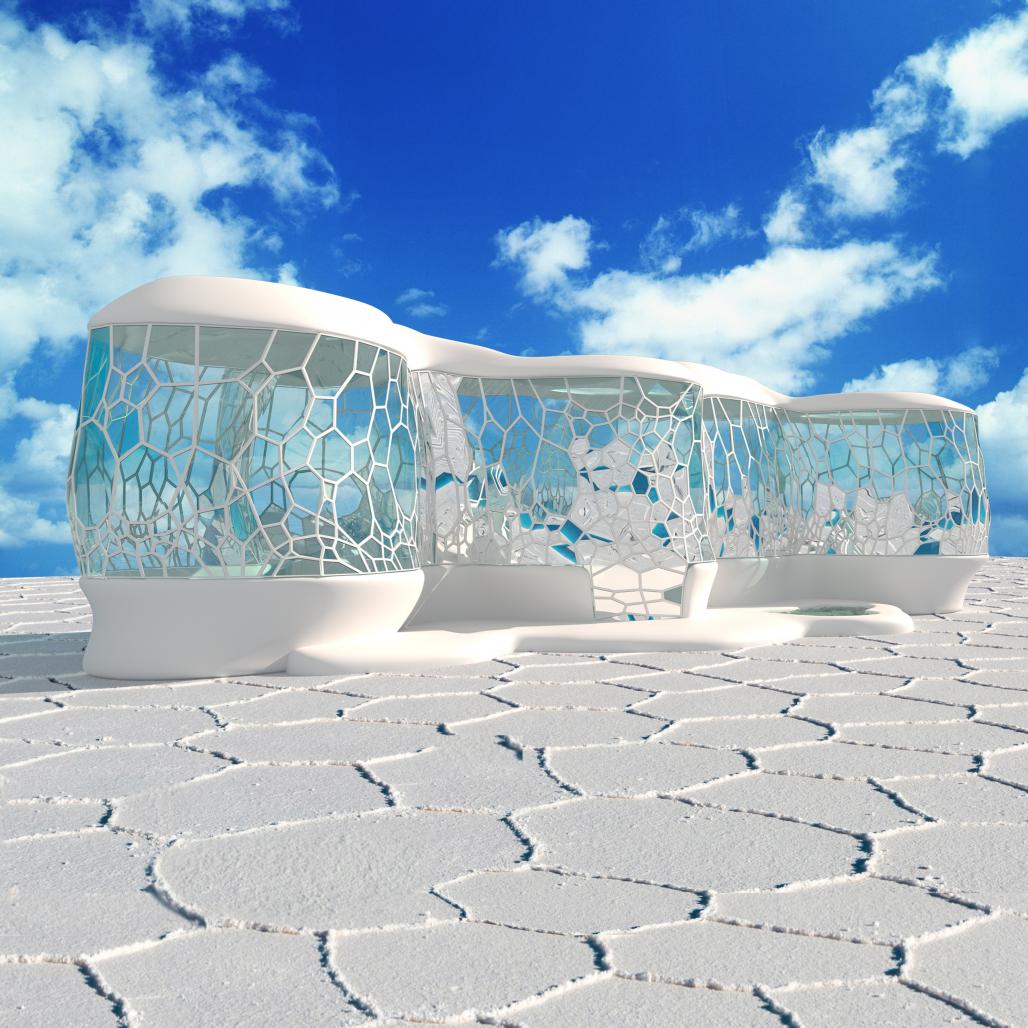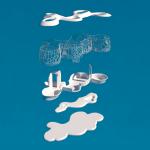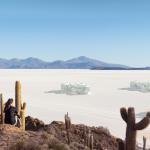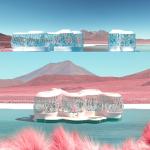The theme of the 22nd competition of the agency was to rethink the amazing space of the Uyuni salt marsh - the largest salt marsh in the world, with a total area of more than 11,000 square kilometers, located in the South-West of Bolivia, formed after the lake dried up. This mysterious place amazes at once - a huge space of table salt, which drying out forms a bizarre honeycomb pattern, huge cacti that grow on several hills of the desert, two lakes that have escaped drying out and now frame the desert on both sides, attracting the attention of pink flamingos, which they arrive in Uyuni precisely because of the lakes, and specifically, algae that grow only here. A mystical and amazing place!
It's no secret that Uyuni is becoming a more popular tourist destination every year. The organizers of the competition set a fairly general task - to reconsider their view of this miracle of nature from the position of a person, to create a form that would harmoniously fit into an extraordinary environment and would become a haven for any wanderer seeking peace, tranquility and the opportunity to feel the energy of the salt desert.
My concept was as follows - to create a fully autonomous full-fledged living unit in which a person can stay for several days without needing anything. The module has an autonomous water filtration and distillation system, electricity is provided by solar cells installed on top of the module and wind sensors.
The shape of the module had to harmoniously fit into the authentic Uyuni environment, have a light structure, and take into account the natural peculiarity of the Salt Flats: during the rainy season, from November to March, the salt desert is covered with a thin surface of water, from 30-50 centimeters, creating the effect of a giant mirror.
With this in mind, I have developed an automatic pontoon system at the base of the module. During the rainy season, the panton around the base is inflated and the module can be easily transported to another location, if necessary, or it slowly slides along the water surface, creating a special atmosphere for its inhabitants. The main idea that I expressed in my project is the development of a tourist block without harm to natural resources in order to attract financial flows to the country for its further development.
Let me remind you that in addition to the amazing nature, the Uyuni salt marsh is the largest lithium deposit, which is the main raw material for the production of batteries, the development of Tesla electric vehicles and efficient energy, in general. The project will increase the number of tourists visiting Uyuni several times, guaranteeing them a comfortable stay in a secluded corner of pristine nature.
Popularization of modern energy-saving technologies, such as solar energy, salt water distillation, autonomous sewage and electric motor, which are used in the module, will increase energy efficiency in all Bolivian cities and have a positive impact on improving the environmental situation.
2020
The streamlined shape of the module, created from an invisible frame, covered with light plastic and glass panels. On the roof of the module there are solar panels that provide complete autonomy of the module
Redkolis Mariia. Architect





